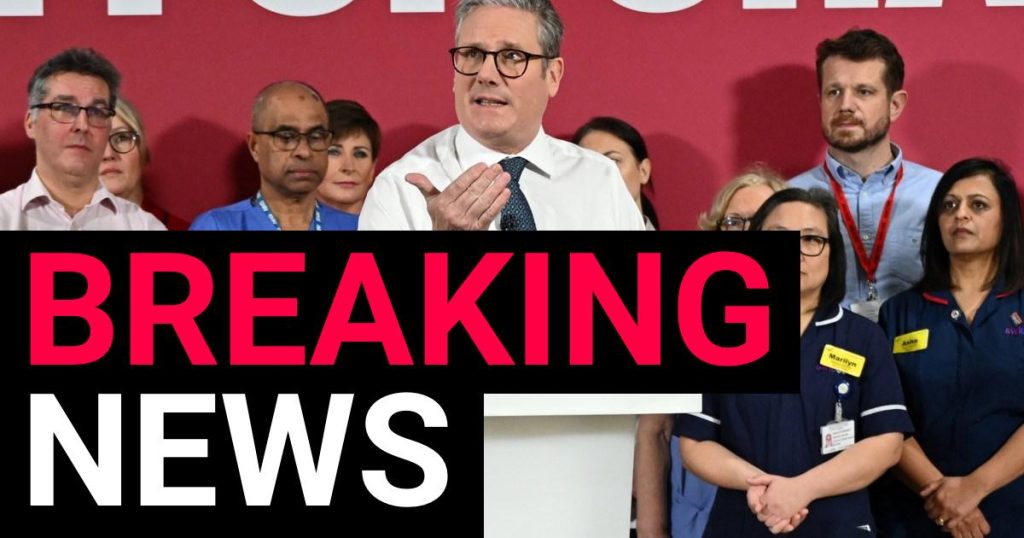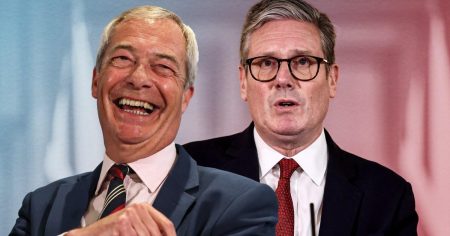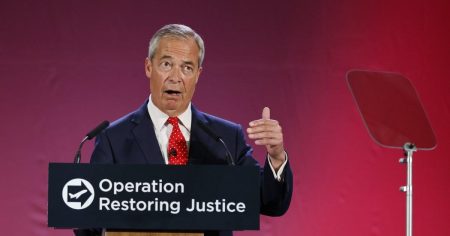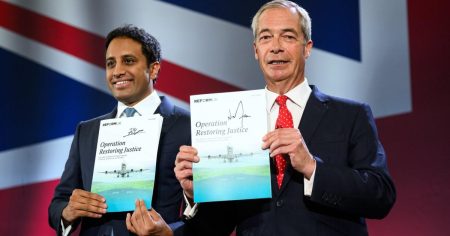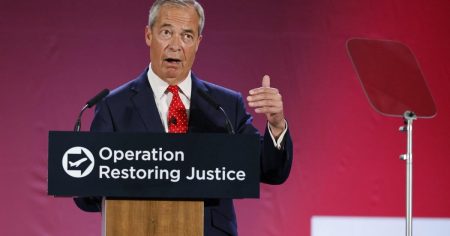The Fallout from Elon Musk’s Intervention in UK Politics
Prime Minister Sir Keir Starmer found himself embroiled in a heated public debate over the handling of child sex abuse cases, ignited by none other than Elon Musk, the world’s richest man. Musk’s online pronouncements, marked by vitriol and misinformation, targeted Starmer and his Safeguarding Minister, Jess Phillips, demanding their imprisonment over what he perceived as inadequate responses to the grooming gangs scandal. This controversy unfolded amidst a broader online discourse polluted by misinformation and political opportunism. Starmer vehemently condemned those spreading these narratives, labeling them as self-serving individuals exploiting a sensitive issue for personal gain. He pointedly criticized those supporting Tommy Robinson, a far-right figure imprisoned for contempt of court, arguing that their actions demonstrate a disregard for justice and a perverse fascination with street violence. Starmer staunchly defended Phillips, highlighting her extensive career devoted to protecting victims of sexual abuse, asserting her commitment far surpassed that of her critics. Furthermore, Starmer defended his own record as Director of Public Prosecutions, emphasizing his role in bringing the first prosecution against an Asian grooming gang and implementing reforms to prosecution procedures.
The online firestorm extended beyond Musk, engulfing politicians from both the Conservative and Reform UK parties who joined the chorus of criticism against Starmer. Conservative leader Kemi Badenoch called for a full national inquiry into "rape gangs" after Phillips indicated a local inquiry in Oldham would suffice. Starmer responded by accusing these politicians of opportunistically "jumping on the bandwagon" to gain attention, highlighting their inaction during their 14 years in government while now amplifying far-right rhetoric for political mileage. The situation became even more convoluted when Reform UK leader Nigel Farage initially praised Musk as a "hero," only to have Musk later withdraw his support, questioning Farage’s leadership abilities and seemingly endorsing another Reform MP, Rupert Lowe. Farage, while acknowledging Musk’s remarkable stature, reaffirmed his disagreement on the issue of supporting Tommy Robinson, emphasizing his commitment to his principles.
This episode underscores the complexities and perils of navigating the contemporary media landscape where social media platforms can rapidly amplify misinformation and inflammatory rhetoric, blurring the lines between legitimate debate and harmful narratives. The involvement of a prominent figure like Elon Musk, with his massive online following, further complicates matters, giving undue weight and reach to unsubstantiated claims. The controversy also highlighted the political polarization surrounding the issue of child sex abuse, with various actors attempting to leverage the public’s concern for their own political gain. Starmer’s defense underscored his government’s commitment to addressing this complex issue while simultaneously condemning the exploitation of victims’ suffering for political point-scoring.
The incident serves as a stark reminder of the potential for social media to be weaponized in political discourse, often at the expense of truth and reasoned debate. The rapid spread of misinformation and the tendency to reduce complex issues to simplistic narratives pose significant challenges to democratic processes. The controversy surrounding Starmer, Phillips, and the issue of child sex abuse became a battleground not just for differing policy approaches but also for competing narratives and political opportunism. The involvement of Musk injected an unpredictable element, demonstrating the potential for external actors to disrupt and distort public discourse.
The rapid shift in alliances and endorsements, as illustrated by the Musk-Farage interaction, further emphasizes the volatility and performative nature of online political engagement. This episode revealed the fleeting nature of online allegiances and the potential for rapid shifts in support depending on the prevailing online sentiment or the whims of influential figures. The back-and-forth between Musk and Farage demonstrated how easily online endorsements can be granted and withdrawn, reflecting the often superficial and transactional nature of online political relationships. This incident highlights the challenges of discerning genuine political convictions from opportunistic posturing in the digital age.
Ultimately, the controversy surrounding Starmer, Phillips, and the issue of child sexual abuse serves as a cautionary tale about the dangers of misinformation, political opportunism, and the outsized influence of social media personalities in shaping public discourse. It underscores the urgent need for critical media literacy, fact-checking, and responsible online engagement to counter the spread of harmful narratives and ensure that public debate remains grounded in evidence and reasoned argument. The episode also calls for greater scrutiny of the role of powerful individuals and platforms in shaping public opinion and potentially manipulating public discourse for their own ends.





